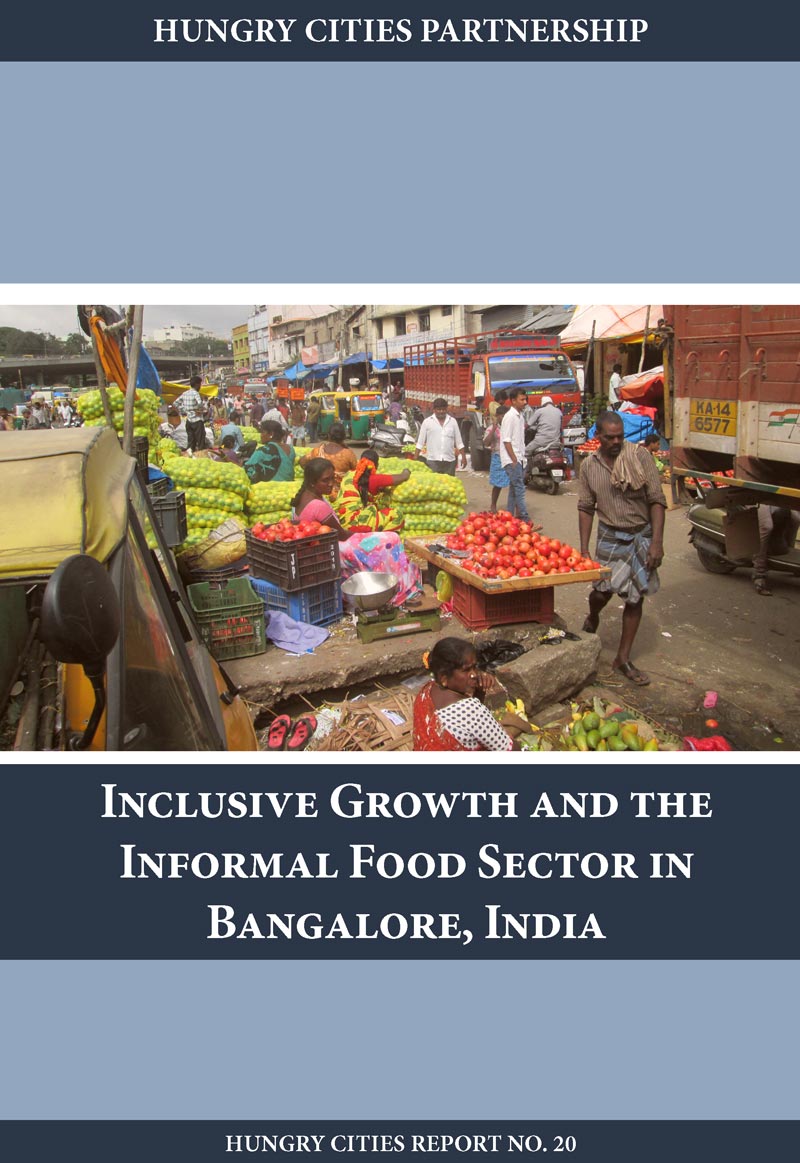The informal food sector is critical to the food security of poor urban households in rapidly growing towns and cities in the Global South. By working in an interdisciplinary context with mixed methodologies and across different cities, the Hungry Cities Partnership (HCP) aims to add considerably to our understanding of common elements and differences. The findings of the HCP’s informal food vendor survey in Bangalore shed light on the role of the informal economy in creating and facilitating employment opportunities for a large number of people, especially for those from poor and marginalized backgrounds. The survey results discussed in this report detail the profile, activities, motivations, challenges, and aspirations of the city’s food vendors and add significantly to the evidence base on which supportive policies can be constructed. Policies towards the informal food economy span the spectrum from complete non-interventionism to draconian attempts to control and even eliminate informality. The pathologizing and criminalization of the informal food sector is especially common at municipal level. Regulation through various legal and policy instruments is also a pervasive response to informality. If the informal food sector is to thrive, and provide opportunities for innovation and entrepreneurship, then an enabling policy environment is essential.

